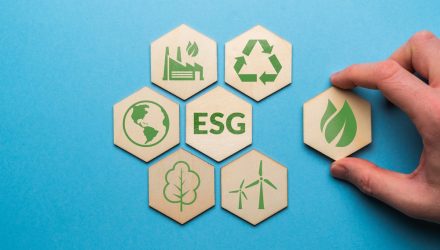In terms of both assets under management and population, the universe of environmental, social, and governance (ESG) funds, including exchange traded funds, is rapidly expanding.
While high levels of investor choice is usually a good thing, a prominent point being raised in 2022 ESG discourse is that many funds in this category may be overstating their credentials. Otherwise known as “greenwashing,” the controversy is stoking added scrutiny of the space.
Investors can avoid those thorny issues with ETFs such as the Invesco ESG Nasdaq 100 ETF (QQMG) and the Invesco ESG NASDAQ Next Gen 100 ETF (QQJG). QQMG and QQJG are just 14 months old, but youth aside, both ETFs are rooted in methodologies that can bolster ESG purity while avoiding greenwashing. The latter point is pertinent at a time when regulators, including the Securities and Exchange Commission (SEC), are paying more attention to strict standards.
“When the U.S. Securities and Exchange Commission created new disclosure mandates for investment advisers and firms that market their products under an environmental, social and governance umbrella, it was thought that the ESG market might shrink,” noted S&P Global. “With a few high-profile fines for mislabeled ESG funds, the SEC has sent a clear message that greenwashing will no longer pass muster. Assets under management in the ESG market have shrunken precipitously, but that shrinkage is a sign of market maturity, as fewer, but more committed, investment owners are left.”
A case can be made that new ESG standards and enforcement of those guidelines is potentially positive for ETFs such as QQJG and QQMG because those products came to market with lineups that are “compliant with the United Nations Global Compact principles.”
That’s an important detail because it implies that QQJG and QQMG, both of which are passive products, may not need to undergo material alterations to comply with new regulations pertaining to ESG investments. That can keep costs low and efficiencies high.
On a separate note, fund issuers aren’t the only members of the financial services community grappling with stricter standards.
“The investment industry is not alone in attempting to define ESG in a rigorous way. The insurance and banking sectors have also struggled to define and measure ESG and, specifically, to measure climate impact. As regulators and customers demand higher standards from companies and products with a sustainable focus, the market will inevitably contract, but a new baseline for genuine growth will then be available,” concluded S&P Global.
For more news, information, and analysis, visit the ETF Education Channel.
The opinions and forecasts expressed herein are solely those of Tom Lydon, and may not actually come to pass. Information on this site should not be used or construed as an offer to sell, a solicitation of an offer to buy, or a recommendation for any product.








